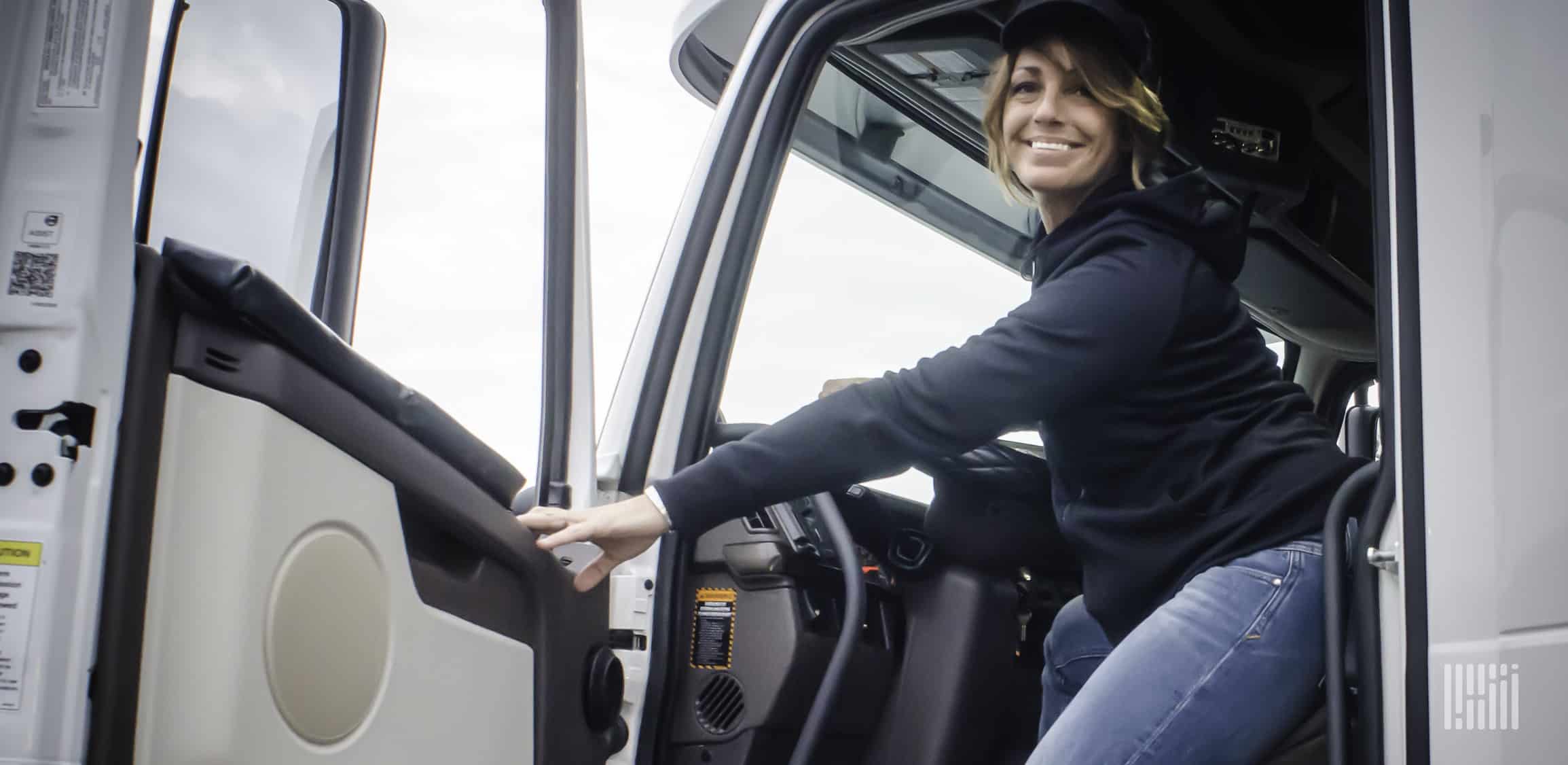With the U.S. relying on more than two million truckers to deliver freight, optimizing dispatch coordination is essential to thrive amid intense competition. Managers face key decisions between outsourcing truck operations to third-party truck dispatch companies versus using dispatcher software.
As systems for dispatching trucks progress into the digital age, companies must weigh their current staff and infrastructure capacity before deciding how to dispatch trucks. Keep reading to find out whether an outside dispatch truck service or a dispatch trucking software platform would better serve your specific needs.
And when you’re finished, check out the other articles in our ‘Truck dispatch services vs software’ hub:
- Simple guide to truck dispatching services
- Truck dispatch services vs dispatch software
- Best truck dispatch service companies
- Best dispatch software for trucking
What are truck dispatch services?
Truck dispatching services function as critical logistical support hubs for independent truckers and small trucking businesses. Using connections within shipping networks and vast freight load boards, experienced trucking dispatchers match available trucks within their fleet to compatible shipping loads needing transportation across the country.
Once loads are selected, truck dispatching companies map out the most optimal delivery routes, strategically planning each truck’s travels to maximize efficiency and meet time-sensitive delivery windows. They carefully track compliance regulations around driving hours, load weights, and hazardous materials, providing drivers with continual guidance and reminders.
Throughout the shipment, dispatchers act as the vital communication bridge between truckers and the shipping vendors, relaying important updates on cargo status, pickup notes, and delivery confirmations. Some expanded dispatch services even provide accounting support for driver settlements, income statements, and other financial documentation that independent truckers often lack robust infrastructure to handle.
By leveraging the logistical expertise of truck dispatch service providers, solo truck drivers and small fleets can focus energy entirely on safe driving. They also benefit from coordination of freight deliveries, routing assistance, and administrative paper-trail management. The robust coordination empowered by trucking dispatch services enables independent truckers to thrive without taking on the entire workload themselves.
What is truck dispatching software?
Truck dispatcher software has become indispensable for trucking companies seeking to thrive amidst the complexities of freight management. The best dispatch software for trucking integrates real-time data from transportation management systems and electronic logging devices to provide comprehensive, birds-eye fleet visibility.
Robust platforms include load boards where dispatchers can post available cargo capacity alongside bids from brokers needing freight shipped. Integrated route mapping optimizes transit efficiency, fuel usage, and adherence to hours of service regulations for drivers. GPS tracking allows dispatchers to monitor all trucks in their fleet and rapidly respond if delays arise.
Document management modules enable the seamless, digital organization of bills of lading, insurance certificates, customs forms, and other items needed for verification at pickup and delivery. Built-in accounting tools generate real-time profit and loss statements, automating settlements to drivers and invoicing to brokers. Compliance alerts warn dispatchers of pending license renewals, violated drive times, expired medical exams, and other issues needing attention.
With truck driver dispatcher software fusing operations, decision making, and data analysis under one platform, companies gain the visibility and control needed to maximize growth. As competition intensifies industry-wide, transportation dispatch software offers an essential path to streamlining logistics complexities.
Comparison: Truck dispatch services vs dispatch software
There are advantages and disadvantages to using both third-party dispatch services for trucking and dispatch management software. Here is a comparison.
Truck dispatcher services
Pros:
- Access to the expertise of a professional, established dispatcher for truck drivers
- Avoidance of upfront freight dispatch software costs
- Leverage broader shipping network connections
- No need to hire and train employees on dispatch for trucking
- Scalable as freight needs change
Cons:
- Recurring monthly expense payable to trucking company dispatcher
- Less control over day-to-day operations
- Still need some dispatch infrastructure
- Can lack customization to needs
Trucking dispatch software
Pros:
- Full control over dispatch operations
- Customizable to freight workflows
- Software for dispatch integrates with other transportation systems
- Keeps trucking dispatching software knowledge in-house
- More flexibility to change providers
Cons:
- Significant upfront and ongoing IT costs
- Need trained staff to leverage capabilities
- Less proven shipping/logistics connections
- Infrastructure limits if grows too quick
In summary, third-party trucking dispatch companies provide quick industry expertise, while dispatching software for trucking offers more customization but requires in-house capabilities. Trucking firms should weigh their priorities, finances, growth plans and risk tolerance to determine the best solution for their needs.
Which trucking dispatcher option is right for whom?
The choice between using external trucker dispatch services or implementing truck dispatch software depends on the size and capabilities of the transportation company:
Owner operators and small fleets
Third-party truck dispatchers tend to provide the most benefit for independent owner operators or small fleets with 1-10 trucks. They do not yet have the internal staff or operations bandwidth to coordinate finding loads, planning routes, managing documentation and accounting. Outsourcing to dispatch pros enables them to focus on building driving skills.
Mid-sized trucking companies
Mid-sized trucking companies with fleets of around 10 to 50 trucks can benefit from basic dispatching software rather than services to improve workflow. The right software automates much of the process at still affordable pricing, and the companies typically have enough internal resources to leverage tools efficiently.
Large trucking companies
Larger trucking companies of more than 50 trucks tend to rely on more expansive, customized dispatching software suites. With an existing strong dispatch staff and complex multi-depot operations, they obtain the most value investing in cutting-edge, real-time monitoring, tracking, routing and analytics solutions.
The tipping point between favoring an outsourced dispatcher for trucking vs software often centers around existing staff capabilities and operational maturity. Building internal capacity enables customization that services cannot match. Outsourcing makes sense for simpler, early-stage players not ready to commit to full-scale dispatch infrastructure.
Find the best dispatch trucking solution for your business
As trucking companies weigh investing in streamlined dispatch infrastructure, the decision between outsourcing and internal software boils down to organizational maturity and growth aspirations.
Owner operators benefit from the turnkey expertise of dispatch services to accelerate early growth. Established mid-size fleets, on the other hand, can leverage customizable software that can conform to existing and future workflows. Regardless of a company’s stage, pursuing dispatch technology dialogues with knowledgeable logistics partners enables firms to map strategic next steps and gain efficiencies.
FAQ
In the trucking industry, dispatch refers to the coordinating, tracking, and communication of truck movements for a transportation company’s fleet. Dispatchers schedule trucks, drivers, and freight shipments to optimize routes, loads, and delivery times.
Truck dispatchers leverage load boards, shipping databases, and existing client relationships to identify new freight shipment opportunities that match available capacity in their truck fleet. Building an extensive shipper contact list and reputation for reliable service allows a dispatcher to solicit new business.
The recommended dispatcher-to-truck ratio is one dispatcher for every 15-20 trucks to ensure capacity to coordinate schedules, check-ins, and resolve trip issues. More advanced dispatch software can enable managing up to 40 trucks per dispatcher.


